
Dr. Alonso Aguirre
A. Alonso Aguirre is Dean of the Warner College of Natural Resources at Colorado State University. He is the first Latin-American to be Dean of Warner College.
Dr. Aguirre’s academic mission is to provide the next generation of environmental science, sustainability, and policy leaders with unique educational and research opportunities that are transformational and transdisciplinary in nature within the context of globalization and international markets.
Previously, he was a Professor and Chair of the Department of Environmental Science and Policy at George Mason University, Fairfax Virginia. There, he headed an academic and research program using One Health/Planetary Health to understand wildlife diseases and their links to human health; he also was chair of the University’s Institutional Animal Use and Care Committee. For the past 30 years his work has focused on the conservation of endangered species and ecosystems under the tenet “health connects all species in the planet,” developing practical, sustainable, and effective solutions understanding local socio-economic factors and a solid grasp of complex national and regional health and environmental policies. His collaborations highlight transdisciplinarity, integrative research, socio-ecological systems and resilience, while building local capacity in over 25 countries.

Dr. Cristian Bonacic
Dr. Cristian Bonacic is a Chilean scientist who specializes in wildlife ecology and conservation. He is a professor at the Department of Ecosystems and The Environment at Pontifical Catholic University in Chile, where he focuses on studying the ecology and behavior of wildlife in the region. As a leading expert in the field, he has made significant contributions to the study of fauna in the southern hemisphere, particularly in the study of the fauna of Chile and the surrounding countries. He is the founding director of Fauna Australis wildlife laboratory that has 20 years of continuous work about biodiversity conservation in Chile and other countries of Latin America.
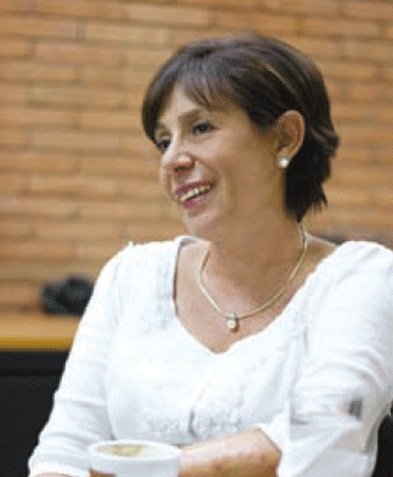
Lorena Calvo
Lorena Calvo gained her degree in Biology from Del Valle University in Guatemala. After several years of working at La Aurora National Zoo in Guatemala City (latterly as its Director), Lorena gained a Fulbright Scholarship to study for a Masters degree in Tropical Ecology at the University of Missouri in St Louis. On her return, Lorena founded a new NGO, the CCBG (Center for Conservation of Biology in Guatemala). CCBG’s research work focuses on the biodiversity and ecological dynamics of coffee plantations. Coffee is the main income crop in Guatemala. Appropriate management of these plantations can help to mitigate the extinction of species. Currently there is little even basic knowledge of what flora and fauna exist – in fact Lorena herself wrote the first two books in Spanish on Guatemalan wildlife.

Dr. Damayanti Buchori
Damayanti Buchori is a Professor at the Department of Plant Protection, Faculty of Agriculture, Bogor Agricultural University, and also holds the position as Chair of the Center for Transdisciplinary and Sustainability Sciences (CTSS), Bogor Agricultural University. She received her Bachelor’s degree from Bogor Agricultural University, Master from the Entomology Department, Universty of Illinois at Urbana, IL, USA and her doctorate in Ecology, Evolution and Behaviour, Biology Department, Indiana University, Bloomington, USA.
An insect ecologist by training, her work covers teaching, research and community works along with activities in various development projects. Damayanti has focused her research on agriculture-conservation issues ranging from pest management, sustainable agriculture, biodiversity conservation and land use change.
In the past 20 years, her work has expanded to landscape approach research where the focus of biodiversity, institution and policy are interlinked. Her interest currently includes science-policy work, ie. how science and policy should be intertwined to produce evidence-based policy that are greatly needed. Damayanti is also active in many international platforms. In 2002-2004, she was a member of the Task Force 7 on Environmental Sustainability of the Millenium Development Goal, United Nations, New York. In 2013-2016, she was one of the lead authors for Pollinators, Pollination and Food Production- an assessment Report by IPBES (Intergovernmental Science-Policy Platform on Biodiversity and Ecosystem Services). In 2022 she was appointed as Lead Co-Chair for Task Force 4 on Food Security and Sustainable Agriculture, for the T20 -Indonesia engagement group
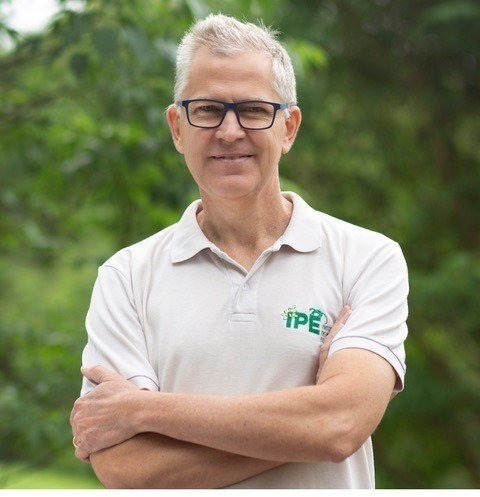
Dr. Eduardo Ditt
Dr. Eduardo Ditt is the executive director of IPÊ – Instituto de Pesquisas Ecologicas, a non-profit organization that undertakes social and environmental projects in most of the Brazilian biomes. He is an agronomist through Esalq/University of Sao Paulo, holds a master’s degree in Environmental Science from Procam/USP and a PhD from Imperial College London.
Ditt started to work with nature conservation in 1992, when he joined IPE as a trainee. Some years later he became a field researcher and conducted several conservation projects related to managing landscapes for mitigating impacts of forest fragmentation while improving the provision of ecosystem services in the Atlantic Forest.
Currently, his main responsibilities, as executive director, are to supervise conservation projects and to coordinate the institutional agenda of IPÊ. Eduardo is also professor of “ESCAS”, which is the educational branch of IPÊ for the development of several courses in environmental conservation and sustainability, including a MSc program.
Besides being passioned by projects and enterprises driven by the mission to harmonize human development with nature conservation, Eduardo’s personal interests include woodworking, home gardening, traveling with his family and visiting natural areas.
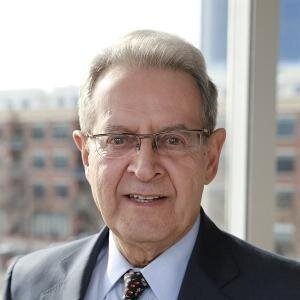
Martin S. Kaplan
Martin S. Kaplan is a retired partner and a former chair of the Corporate Practice of the law firm Wilmer Hale. When he retired in 2009 he had a general corporate law and trust practice, focusing on the representation of charitable foundations. In addition to charitable foundations, Mr. Kaplan's clients included a broad range of public and family-controlled companies in financial services, manufacturing and distribution. He has managed a large number of complex corporate, real estate and nonprofit transactions. Mr. Kaplan is an emeritus member of the Board of Directors of the Boston Foundation, and served as chair of its Program Committee while serving on the board. He is also an emeritus overseer of the Boston Symphony Orchestra, and was national chair of the American Jewish Committee's Interreligious Affairs Commission and a member of the AJC Executive Committee. Mr. Kaplan has spoken at numerous conferences and events on matters relating to foundations and family businesses, as well as on educational, environmental and interreligious issues. From 1992-1996, Mr. Kaplan was chair of the Massachusetts Board of Education (appointed by Governor William F. Weld), and was a major proponent of the education reform movement in Massachusetts. He was also a member of the Education Commission of the States, and a director of the National Association of State Boards of Education.

Vance LaVelle
Vance LaVelle spent 30 years in corporate America with AT&T, J.P. Morgan Chase, and Sirius XM Radio before joining the Climate Reality Project. An expert in marketing and business strategy, LaVelle is now a consultant who splits her time between New York and Memphis, Tennessee.

Dr. Rodrigo A. Medellín
Dr. Rodrigo A. Medellín is Senior Professor of Ecology at the Institute of Ecology, University of Mexico. He has worked on the ecology and conservation in Mexico and elsewhere for over 40 years, and has authored over 190 publications. Medellin was the President of the Society for Conservation Biology, is the founder of the Program for the Conservation of Bats of Mexico, and is the founding Director of the Latin American Network for Bat Conservation. Medellin is also Co-Chair of the Bat Specialist Group of IUCN. Medellin uses a multidisciplinary approach, from behavioral ecology and conservation biology to applied genetics, with an eye towards policy applications. He formerly headed the Wildlife Department of the Mexican Federal Government and continues to advise on wildlife issues. He is an Adjunct Professor at Columbia University, Andalusia International University, the University of Arizona, and a Research Associate at the American Museum of Natural History and the Arizona-Sonora Desert Museum. He was vice-Chair of the CITES Animals Committee, and is a COP-appointed Scientific Councilor for the Convention of Migratory Species. He has received the 2004 Gerrit S. Miller Award of NASBR, the Whitley Fund for Nature Gold Award, The Rolex Award for Enterprise 2008, among others. He was recently featured in a BBC documentary, The Bat Man of Mexico, narrated by Sir David Attenborough.

Dr. Lourdes Mugica Valdés
Dr. Lourdes Mugica Valdés is Auxiliary Professor at the University of Havana’s faculty of Biology in Cuba. She has taught there since 1982, involved in both formal ecology courses and in the faculty’s research and environmental education programs. She is part of Havana University’s Bird Ecology group, which is widely recognized for its contribution to our knowledge of Cuban waterbird ecology. She is moreover a world leader in the study of rice paddies as an important habitat to aquatic bird species. Lourdes is devoting her life to saving wetlands in Cuba. The biggest island in the Caribbean, Cuba is in the middle of waterbird migration corridors, including the Atlantic and Mississippi Flyways, and is also host to some of the last significant populations of a number of Caribbean bird species, such as the West Indian whistling duck. Of great interest to Lourdes is the fact that rice is also the second most important crop after sugar cane in Cuba.

Dr. Claudio Padua
Dr. Claudio Valladares-Padua has bachelors’ degree in Business Administration and Biology and a Master of Arts degree and Ph.D. from University of Florida. Claudio is a co-founder and Vice-President of the Board of IPÊ – Instituto de Pesquisas Ecológicas (Institute for Ecological Research) in Brazil. In Brazil, he is also a retired Professor at the University of Brasília and Rector of the University for Conservation and Sustainability ESCAS in Sao Paulo. Claudio is also a sustainability board member Natura Cosmetics Amazon Program, the Arapyaú Institute and Inseed asset management. Claudio is also partner and director of Biofílica Environmental Investments and Parquetur participations. In 2003 was portrayed by Time Magazine together with his wife Suzana as conservation heroes of the planet and in 2009 the couple was selected Social Entrepreneurs of the year by Folha de São Paulo and Schwab Foundation (World Economic Forum). He also co-authored or edited four books and has more than 40 articles published in national and international journals.

Dr. Suzana M. Padua
Dr. Suzana M. Padua is a Brazilian environmental educator with a doctoral degree from the University of Brasilia and a Master’s from the University of Florida. She is the president of IPÊ - Instituto de Pesquisas Ecológicas (Institute for Ecological Research), a Brazilian organization that works for the conservation of biodiversity and sustainable development. Her conservation education programs are broad, as they reach students, mid-career professionals and decision makers. She helped put together IPÊ’s education center, ESCAS, where short-term courses, Master’s and MBA are offered to professionals from Brazil and from other Latin American countries. She has published widely in many countries and has contributed to several governmental and non-governmental projects related to environmental education and sustainability.
Suzana is an Ashoka fellow, an AVINA leader, an IUCN in the Commission on Educaction and Communication, a Russell E. Train Scholar and a Bacardi Scholar. She has received several awards: Global Visionaris UBS (2018); Benchmarking Person (2017); Visionaris-UBS (2017); the Wildlife Conservation Award of the Cincinatti Zoo and Botanical Gardens (2017); the Margot Marsh Excellence in Primate Conservation of the International Primatological Society (2016); Schwab Foundation and Folha de São Paulo Social Entrepreneur (together with her husband, Claudio Padua, 2009); Ford Motor Company and Conservation International Environmental Award (2006); the Most Influential Women of Brazil - Forbes, Gazeta Mercantil and Jornal do Brasil (2005); Conde Nast Traveler Environmental Award (2003); Woman of the Year (Claudia magazine finalist of 2002), among others. Together with her husband Claudio Padua, they were both featured as “Heroes of the Planet” by Time magazine in 2002.

Dr. Mary C. Pearl
Dr. Mary C. Pearl recently retired as the dean of Macaulay Honors College of the City University of New York, and is now director for relationship building at the Helping Africa Foundation. She is a scientist, environmentalist, and educator who also served as the founding dean and administrative vice president of Stony Brook University’s Southampton campus dedicated to environmental sustainability. As president for 15 years at the Ecohealth Alliance, a global organization dedicated to innovative conservation science, Dr. Pearl helped build careers of local scientists and educators in 20 high-biodiversity countries around the world. She is also a founding faculty member for the master’s program on Design for Social Innovation at the School for Visual Arts, and served as the co-manager with Dr. Buchori of a three-year USAID-funded program based at Indonesia’s National Agricultural University (IBP) to transform science, engineering, and technology education in Indonesia’s high schools. She sits on the boards of Brazil’s Institute for Ecological Research and The Center for Large Landscape Conservation.

Dr. Jon Paul Rodríguez
Dr. Jon Paul Rodríguez is Chair of the Species Survival Commission of the IUCN (The International Union for Conservation of Nature) and Professor at the Center for Ecology of the Venezuelan Institute for Scientific Investigations (Instituto Venezolano de Investigaciones Científicas ― IVIC), and he is a founder, past Board Member (1987-2001, 2009-2012) and President (2001-2008, 2013-present) of Provita, a Venezuelan conservation NGO established in 1987. His undergraduate degree in biology is from Universidad Central de Venezuela in Caracas (1991). He was then awarded a Fulbright scholarship for a PhD in ecology and evolutionary biology at Princeton University (1999). In addition to serving on the Steering Committee of SSC, Jon Paul is actively involved in the development of the IUCN Red List of Ecosystems, an initiative led by the Commission on Ecosystem Management. His work focuses on understanding patterns in the spatial distribution of threatened species and ecosystems, as well as the underlying causes of these patterns, and the development of policy guidelines for biodiversity conservation. He is author or co-author of more than 150 publications, including many peer-reviewed articles in acclaimed scientific journals.

Dr. Raman Sukumar
Dr. Raman Sukumar is an Indian ecologist best known for his work on the ecology of the Asian Elephant and wildlife-human conflict. He also works on climate change and tropical forest ecology. He was born in India in 1955. In 1986 Sukumar also helped design the Nilgiri Biosphere Reserve, the first of its kind in India. In 1997, he set up the Asian Nature Conservation Foundation, a public charitable trust that incorporates the Asian Elephant Research and Conservation Centre, an organization that has carried out several field projects in India and other Asian countries on elephants and their habitats. In 2006, he was awarded the International Cosmos Prize, Japan, the first Indian to get this award. He was also commended by the Prime Minister of India for contributions to the Intergovernmental Panel on Climate Change (IPCC), which shared the Nobel Peace Prize in 2007. He received his Bachelor of Science degree from the University of Madras in 1977 and a Masters in Botany from the same university. He obtained a PhD from the Indian Institute of Science in 1985. He was a Fulbright Fellow at Princeton University in 1991 and was the Chair at the Centre for Ecological Sciences at the Indian Institute of Science for over eight years (2004–12). He continues to pursue conservation-based scientific research as a Professor at this Centre and is often called upon to represent Indian wildlife scientists in a number of international, national and regional governmental committees.

Yolanda Kakabadse
Yolanda Kakabadse’s work with the environmental conservation movement began in 1979, when she was appointed executive director of Fundación Natura in Quito, where she worked until 1990. In 1993, she created Fundación Futuro Latinoamericano, an organization dedicated to promoting the sustainable development of Latin America through conflict prevention and management. She was the executive president until 2006 and remains as chair of the Advisory Board. From 1990 until 1992, Kakabadse coordinated the participation of civil society organizations for the United Nations Conference for Environment and Development (Earth Summit). From 1996 to 2004 she was president of the World Conservation Union (IUCN), as well as a member of the board of the World Resources Institute. She was appointed minister of environment for the Republic of Ecuador, a position she held from 1998 until 2000.

Dr. Tarsh Thekaekara
Tarsh is a researcher-conservationist interested in more human inclusive models of nature conservation. He holds an MSc in from the University of Oxford, and a PhD between Oxford and the Open University. He co-founded The Shola Trust in 2008, The Real Elephant Collective (a non-profit company) in 2015, and is affiliated with Dakshin Foundation and the TransDisciplinary University. His main areas of work include human-elephant shared spaces, and reducing the impact on disempowered local communities by finding ways to minimise negative interactions. He also works on the invasive weed Lantana camara, primarily looking at how communities can use the plant in various ways. Most of his work is in the Nilgiri Biosphere Reserve (across Tamilnadu, Kerala and Karnataka), but he is also involved in wider networks (www.coexistenceconsortium.com) aiming to promote human-wildlife coexistence at more national and global scales. A herd of 100+ Lantana elephant sculptures are travelling around the world in prolific public displays (www.coexistence.org), calling on people to live well with nature around them, while also providing a livelihood for about 120 indigenous artisans, and raising funds for human-wildlife coexistence.
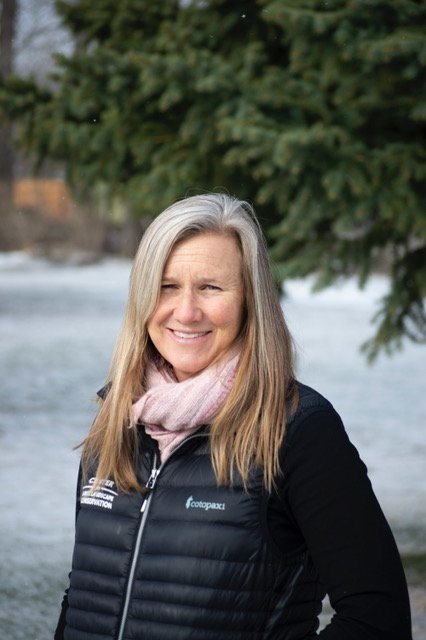
Deb Davidson
Deb Davidson serves as the Vice President at the Center for Large Landscape Conservation. She directs overall program leadership, strategic partnerships and network development, fundraising, and strategic planning for the Center and its domestic and global conservation programs. In addition to overseeing program and organizational development, Deb ensures implementation of regranting and program delivery for
the Center’s fiscally sponsored projects (Network for Landscape Conservation and US Biosphere Networks). She also provides leadership on board development, communications, and organizational governance. Deb has worked in conservation philanthropy, landscape conservation and habitat protection programs for over 20 years. She has largely focused on working with a wide-diversity of partners and communities on the protection of wildlife corridors and large landscapes, with a specific focus on network development, connectivity policy and science in North America. Before joining the Center, Deb served as a grantmaker for the Wilburforce Foundation, program staffer for American Wildlands, the Ecology Center, and Montana Outdoor Science School. She has served on numerous boards including as the president of the Bozeman Community Food Co-op, and as an advisor to the Gallatin Valley Land Trust

Dr. Susana González
I am full Professor of the Department of Biodiversity and Genetics, of the Instituto de Investigaciones Biológicas Clemente Estable, co-chair of the Deer Specialist Group of the Species Survival Commission International Union of Conservation of Nature. My goals are to obtain basic biological data to all the native deer species and design sustainable conservation policies for the Latin-American region. My research focus in the last 3 decades is the pampas deer the only Cervidae species that inhabit in open grassland. I have trained in Uruguay and the region postgraduate students on conservation biology. During this period with the support of several conservation awards, I have consolidated a network of landowners to conserve the pampas deer and published more than 50 articles in conservation genetics topics.
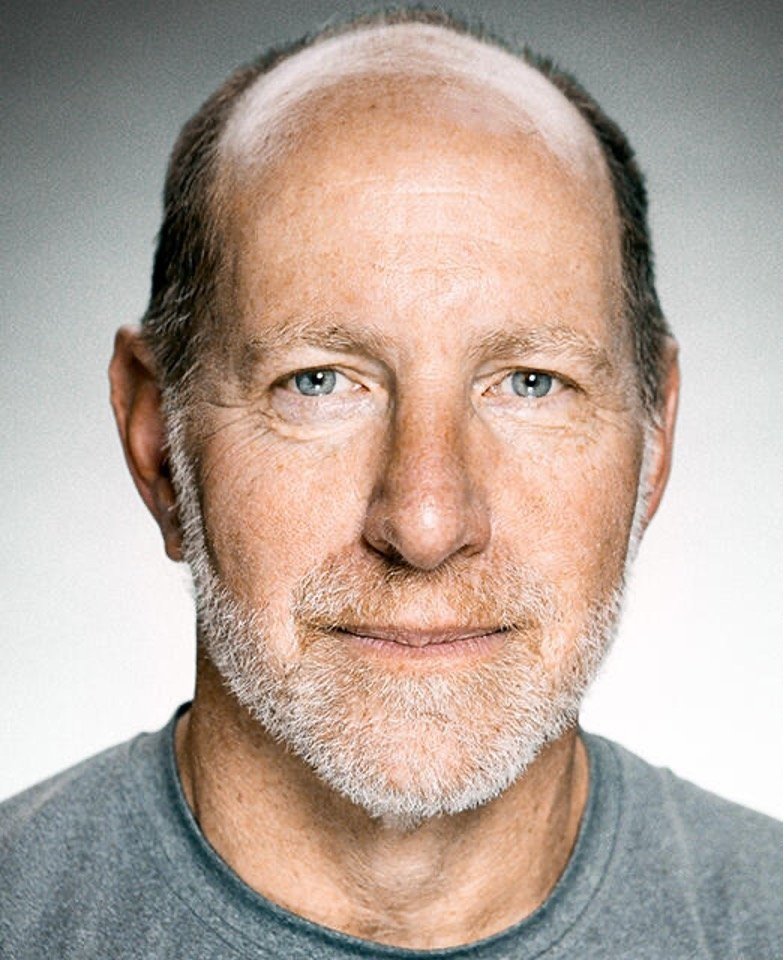
Gary Tabor
Gary M. Tabor is an ecologist and wildlife veterinarian based in Bozeman, Montana. He is the Founder and President of the Center for Large Landscape Conservation (www.largelandscapes.org) - a support organization for large-scale conservation efforts. Gary is also Chair of the IUCN World Commission on Protected Areas' Connectivity Conservation Specialist Group which connects 1300 scientists across 135 countries. Gary has worked on behalf of large landscape conservation internationally for over 40 years on every continent except Antarctica.
Gary’s conservation achievements include the establishment of Kibale National Park in Uganda; the establishment of the World Bank’s Mountain Gorilla Conservation Trust in Uganda; co-founding the Yellowstone to Yukon Conservation Initiative; pioneering the field of Conservation Medicine; co-founding Patagonia Company’s Freedom to Roam wildlife corridor campaign and co-founding the Network for Landscape Conservation. Gary is a recipient of the Australian American Fulbright Scholar award in Climate Change and the Henry Luce Scholar Award.
He has academic affiliations with Cornell University (incoming Professor of Conservation Practice), Board of Advisors of the Global Health Institute at University of Wisconsin Madison, Board of Advisors for the Salazar Center for North American Conservation at Colorado State University, and an Adjunct Associate Professor at the University of Queensland, Australia. He is a member of the Conservation Committee of the National Aquarium in Baltimore and serves on the board of Bush Heritage Australia's US Board – a land trust that manages 1% of all lands in Australia.

Dr. Patricia Moehlman
Dr. Patricia D Moehlman is a behavioral ecologist/conservation biologist. Her research focus has been on wild equids and canids. This has included long-term research on the critically endangered African wild ass in Somalia, Ethiopia and Eritrea. The emphasis is on African wild ass behavior, ecology, demography, population genetics, population viability and ecosystem modeling that involves local people and their livelihoods. The goal is to provide science-based strategies for ecosystem management. An important part of this work has been providing support and post-graduate training for African nationals.

Dr. Carina Righi
I have worked for more than 25 years in scientific projects and conservation of threatened species in Argentina,
both marine and terrestrial. I have developed and implemented recovery programs for threatened species at the
national and regional levels. I have also worked on the creation and strengthening of protected areas. I have
experience in networking and with communities, in the management and leadership of multidisciplinary projects in
NGOs, and in team building within the framework of conservation and science projects. I have participated and
coordinated working groups in international and regional networks. During the last 15 years I have led and
strengthened the political positioning of prestigious conservation organizations. I am trained to work with
government actors, civil society organizations, and independent researchers and professionals.

Dr. Alan Zavala-Norzagary
Alan is a Research Professor at the IPN-CIIDIR Sinaloa in the Department of the Environment. He has been at that research center for 23 years, and during 18 years focused on research lines for the Protection and Conservation of Wildlife and Conservation Medicine, and is leader of the Wildlife and Emerging Diseases Laboratory. He is a member of the SNI-CONACYT Level I, has directed 29 external and 12 internal projects, is the author and collaborator of 34 scientific articles in indexed journals and has graduated 17 graduate and five undergraduate students. He is a member of different research networks, such as the IPN Environment Network, the Grupo Tortuguero de Las Californias (GTC) network, the Sinaloa Tortuguero Network, LaudOPO, ICAPO, MTSG-IUCN, the Sinaloa Marine Mammal Stranding Network of PROFEPA, and member of the CIT scientific committee. He is executive president of the Advisory Council for CONANP in Sinaloa and has received awards for conservation such as the “Manuel Orantes” Award in 2008; the “Carolina Anderson 2011” from GTC; and the 2021 Ecological Merit Award in Research by the Secretariat of Environment and Sustainable Development of the Government of the State of Sinaloa.





















